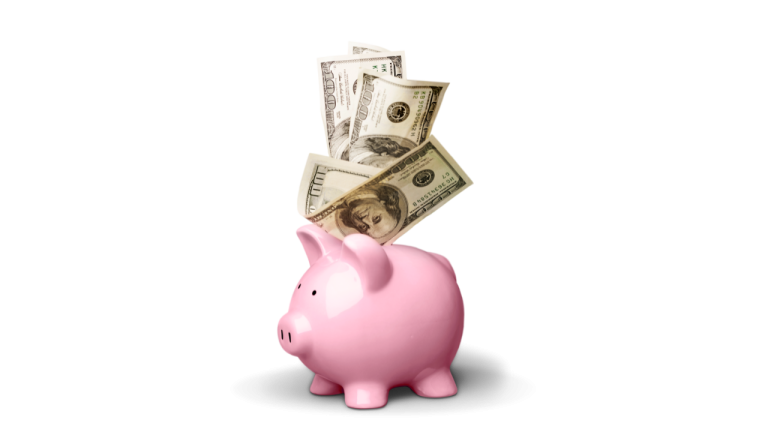Would you like to become rich?
Perfect!
Do you know what would you need to achieve that?
(Probably you do)
It’s money, of course!
Where will you find the money?
From your income sources!
In this article, I am going to analyze the three different types of income.
What I will do is try to analyze the positive and the negative qualities of each one, as well as what you should go after if your ultimate goal is to become rich.
Active Income

What is Active Income?
Active income is the money we receive in exchange for our work hours.
It’s the income that comes from our active work.
You work and you’re paid depending on how much and where you worked.
Active Income Examples
Paid work, work contracts, productivity bonuses, etc.
How is Active Income taxed?
Active income is the most highly taxed income worldwide.
The income tax, along with your insurance contributions and your medical insurance, can reach up to 50% of your income!
Active Income characteristics
The truth is that it’s hard to become rich only from your active income.
This happens for a few reasons:
First of all, as we said, active income is the highest taxed income.
Second, your (along with everyone’s) time is finite!
What does that mean?
A day has only 24 hours, from which you can use only a few for work.
No matter how eager you are, your day will end, and with it, your available hours.
In other words, the money you get from your active income are not “scalable”.
Another negative characteristic of active income is that as soon as you stop working, on that moment, your income also stops.
Now, for the positive characteristics, it’s the easiest income you can have.
You can easily find a job, either full-time or part-time.
This is the reason most people choose this method to get money.
A way to pass into other, better forms of income, is to use this active income and invest it into something else.
This can be one of your side hustles (as is this blog for me), starting a new business, or getting into investing (as I’m doing with P2P Lending, for example).
Portfolio Income

What is Portfolio Income?
Portfolio income is money earned through selling an asset at a higher price than the one you paid to get it.
*It can also be called capital gains.
Portfolio Income Examples
- Selling assets like stocks, bonds, and mutual funds
- Buying and selling real estate
- Buying and selling assets in general, like cars, etc.
How is Portfolio Income taxed?
In general, the taxation on portfolio income is lower than that of active income.
Portfolio Income characteristics
One of the negative sides of this type of investment is that for the average person, investments (of any kind) can seem scary!
And when something is scary, people tend to avoid it, and as a result, they don’t even take the first step.
To add to the above, this type of income may need a bit more time to show its true potential—especially if you’re of the school of thought that favors long-term investments (like me).
If, on the other hand, you’re excited for the life of a trader, selling and buying assets in much higher speeds, then you can achieve the coveted earnings in a much shorter timeframe.
*or losing everything in a much shorter timeframe.
Especially if you don’t really know what you’re doing, then we’re talking more about gambling (speculating) than investing.
Finally, in order to start investing in assets, there is another thing you’ll need.
You need to have the money up front!
This is the second most popular reason why people don’t invest.
You can alwaysal start with a small capit which you would slowly feed with more money (that’s what I do and suggest).
My personal objective:
I’d like my investments to act as a supplementary income in my basic incomes. (I wrote that I’d like to, because that’s something I haven’t achieved yet)
Passive Income

What is Passive Income?
Passive income is money earned from assets – money that you’re not actively working to earn.
Passive Income Examples
- Income from renting property
- Income from businesses (which don’t need your time or active involvement)
- Selling intellectual property (e-books etc.) – Royalties
How is Passive Income taxed?
Passive income has the most favorable taxation.
Characteristics of Passive Income
Passive income is considered the cornerstone in wealth development.
From the moment that one of your investments creates wealth without you needing to do something to maintain it, then you have a basic, and very important advantage.
You have a very powerful ally which is an enemy for most.
Time!
You won’t be exchanging your finite hours for money, but you’ll have a steady flow of income (which will be constantly earned even when you are sleeping *cliché*).
In contrast to active income, passive income will be there, generating wealth, regardless of your own actions.
In general, passive income doesn’t need an initial capital (like the portfolio income).
It needs another kind of investment, though, time and effort, for which you’ll be rewarded in the future!
An example of a passive income can be a content blog (as is MoneyMinority for example).
What do I mean?
You dedicate much time and effort to create content that’s valuable and useful to its users.
This content, after some time, and after it’s been classified as useful by Google, will attract readers.
You can use the generated user traffic of the blog and monetize it!
How? The simplest way (among others) is to show advertisements.
These advertisements will create a steady passive income, as long as your blog’s traffic is the same.
If you want to learn more about creating passive (and not) incomes from your own home, you can read my more detailed guide.
In closing, regarding Income…
Understanding the 3 different types of income is the first and most important step to economic progress in your life.
It’ll also define how you’ll use the money you are already making.
Will you choose to spend them for material goods and entertainment?
(By all means, do it—I’m not judging anyone)
Will you choose to buy assets which will create passive income for you?
Will you invest in a business of your own?
Everything depends on your philosophy and life plan.
Is your objective to get a pension soon, achieving an early financial independence?
Then, income number 2 & 3 is your goal!
Maybe you want to focus on offering to the world through your freelance job?
Income number 3 is your goal!
Do you believe that hard work and time create money?
Income number 1 is your goal!
It’s all up to you and your choices!

Your beliefs guide your emotions.
Your “e-motions” create actions!
Your actions will lead you to the results you want to achieve!
Depending on your choices, you may “end up” being financially independent retiring early, living off 4% of your portfolio and travelling around the world.
On the other hand, you could “end up” being a multimillionaire with his own business, who will never want to retire!
Two completely different paths, both containing quite a bit of money!
What matters is your beliefs and your actions!
The three different types of income show you how to use money to your advantage, in order to build the future you want.
The sooner you realize how money works, the sooner you’ll be making the correct (considering your long-term goals) choices that will lead you to personal success.
That’s how the system works!
Decode it, understand it, and exploit it!



![Bunq Bank & Travel Card Review: The Ultimate Guide [2020] Bunq Card: The Complete Guide [2019]](https://moneyminority.com/wp-content/uploads/2019/11/Bunq-Κάρτα-από-Ελλάδα-Ο-Απόλυτος-Οδηγός-2019.jpg)